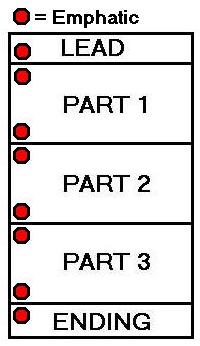| English: Early_20_yens_gold_coin (Photo credit: Wikipedia) |
But giving my wife a play-by-play of the first class session, I suddenly recalled that Fry didn't talk about "gold nuggets." He talked about "gold coins," which makes sense since nuggets are raw material and not all that glittery, not in real life.
The Google is a powerful thing. I found Fry's blog, where he specifies what he means by gold coins. I got it partly right.
Crossing boundaries
Human beings make decisions at boundaries in their lives. Patients dying in hospitals tend to die in the first hours of New Year’s Day, or of their birthday. Readers decide whether to keep reading just before boundaries, and they remember what they read on each side. Writers need to frame boundaries so readers read across them, and remember important points.
Where are the boundaries? Between the lead and the first section, between sections, and between the final section and the ending. The material on each side of a boundary is either an ending of a unit, or the beginning of another, and therefore emphatic.

We lure readers across boundaries by clarity, gold coins, cliffhangers, and subheads. Unconsciously, readers are always thinking about stopping, and they jump out when they start to feel stupid or confused, or know enough. If your readers think, “How’d I get here” or “Where’s this going,” they’re about to wave goodbye. As they realize they’re approaching a boundary, their urge to leave increases. So you need to write even clearer just above a boundary, such as a section break.
We can place a “gold coin” just as the readers start to wobble. A gold coin is something that will amuse or delight them, such as a neat quote, clever sentence, interesting character, or amusing anecdote. As readers enjoy the gold coin, they predict there are more to come, and keep reading across the boundary.
Close enough.

No comments:
Post a Comment